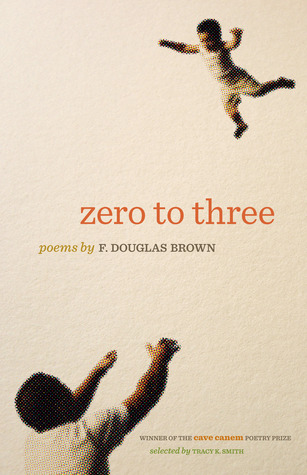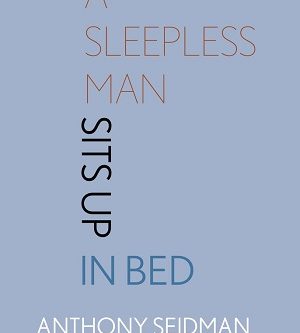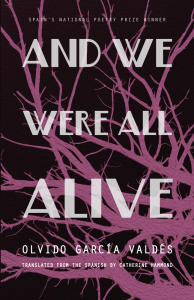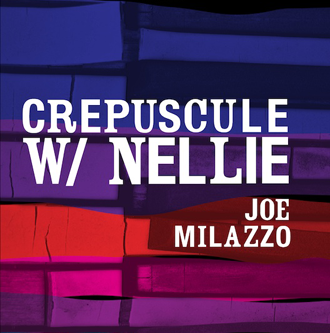 Zero to Three by F. Douglas Brown
Zero to Three by F. Douglas Brown
Zero to Three makes parenting, life, and death relevant to the reader’s life through words that bring the feeling of a moment in time in one’s life in which exists through the dichotomy of one word: fleeting. The words on the page leave a lasting impression, all the while touching upon parts of our lives that we remember as “passing us by so fast.” This book of poems begs us to ask questions such as at what moment are we alive, at what moment do we accept death, and how do we deal with bringing a child into a world where it is in our human fact to falter, to inflict emotional pain on others. This poetry invites us to relish in the beautiful and the ugly, because both foster growth. The words on the page go from “Zero to Three,” that is to say, they journey us through those formative years of life not often spoken of—and in brevity, they bleed on the page up until the “life” beyond ones own grave. They delight in new beginnings and try to capture the emotional enigma of endings, and sometimes vice versa.
In the opening poem “Zero,” the reader learns that a new life is soon to begin, but the speaker of the poem expresses the anxiety—the arithmetic process of coming to terms with the presence of Zero, the moment when life begins. “So soon, another body, her body will thump / My palm rolling/across her bare belly / after nine months, skin at its full potential.” While we often think of the number Zero as representing nothing, Zero is less than any whole number. Here we learn that we are wrong. Zero is everything—it is the instance of running to answer the phone, to know that your whole life is about to change in what feels like Zero seconds. In a space of nothingness, “all variables equals baby.” As the collection continues, it does not yearn to give us answers but rather is constantly nudging at us to remember about all of the mystery in the various stages of life, and touches upon the experience of learning from a new baby life. Similarly, like the son or the daughter in the poems of this collection we learn that we too are children, to our own experiences. In the book of poems, the child is who reminds the speaker of being inherently flawed, beautiful, and most importantly—human. Just as the reader learns every time the page is turned and the experience is felt.
In part II of this collection, a poem named “Finding Glee” focuses on how one can experience a kind of growth that goes beyond the physical growth of the body. Simultaneously, it speaks on the fleeting moment of realization that one has when thinking about our belonging in a world full of unpredictable chaos. Being young is not easy, and being grown up does not strip away the difficulties either. The author writes: “Finding glee in a world / That quickly turns cold in civil dispute / Seems nearly impossible…” By the time we get to “Finding Glee” we find ourselves once again, with the speaker of the poem, trying to find the beauty in the ugly. Other poems in this collection use different ways to rapture such moments. “Body Stubborn” includes lines from a song by hip hop trio A Tribe Called Quest, “Can I Kick It,” and is successful at not only celebrating pop culture, but using it in juxtaposition to show maturation in a fundamental period of human life through this bop style poem. Brown’s poems draw inspiration from other writers and styles in ways that we are reminded, in the same sense that T.S. Eliot once coined about the “past-ness of the past and the present.” Brown is paving the way equally elevating writers and musicians of the past and the speaker’s own life in the present moment in which we are reading about it. At the turn of every page, there is a spectrum of new ideas that are presented and we realize that word placement becomes extremely vital in this book of poems. It guides us, like a parent to their child—telling us when it is best to slow down or speed up, when to begin or end. On the surface, this feeling the reader experiences through language play seems a bit paradoxical to the questions that his poetry seeks to leave at mystery to the reader, but without resistance it reinforces a learning experience that is bigger than ourselves and the control we have on our own lives.
The final section of Zero to Three consists of all prose poems numbered 1-13. They are poems that deal with loss but consistently elevate our humanness and the circle of life. Probing the mind again, making way for questions that the reader is left to relish in, for themselves. Often times we are told that finding the answers to the questions we have about our lives are the beautiful moments, the moments where we discover ourselves, a beautiful clarity. Zero to Three permits us to embrace the questions as they are at face value, like a birth mark on our skin, because our insecurities are very much a part of what allows us to evolve. “No such thing as flesh dying—the body will be the body again and again.” Suffice to say, F. Douglas Brown is not done here—his many stylistically different poems that sting with personal memories and the dismantling tropes of being a human “end” on not a definitive stance, but a longing to continue learning to embrace and welcome the different rhythms during our lives as we move forward to the next destination—wherever that place may be next.
Zero to Three is available now through the University of Georgia Press.



